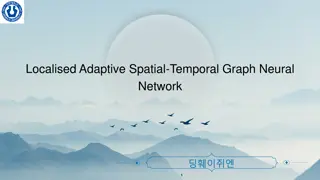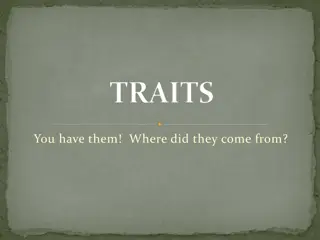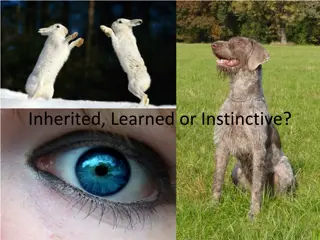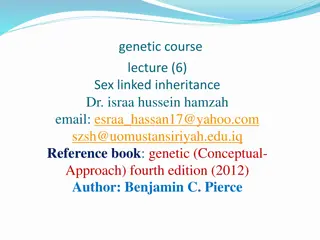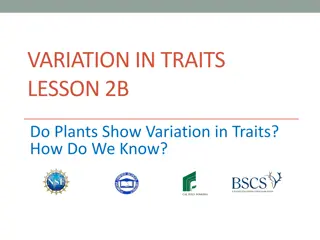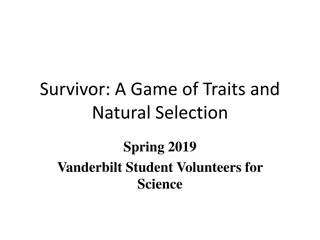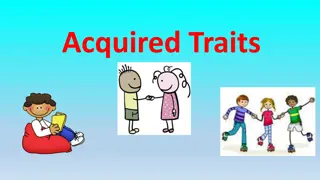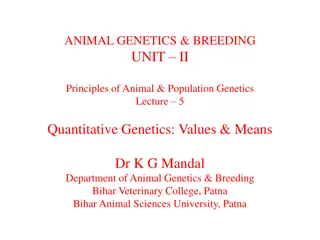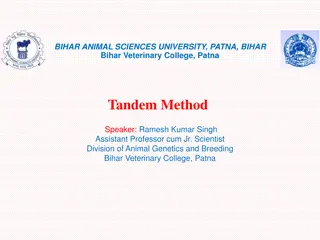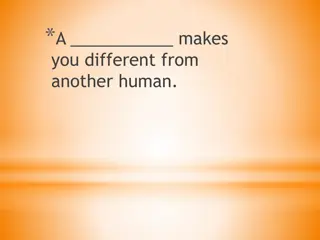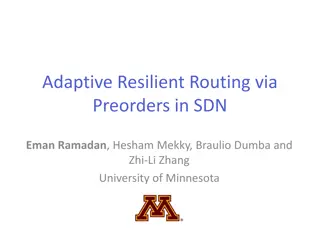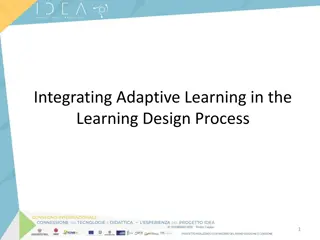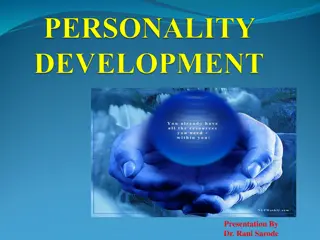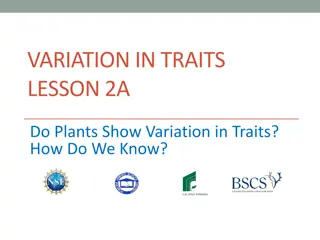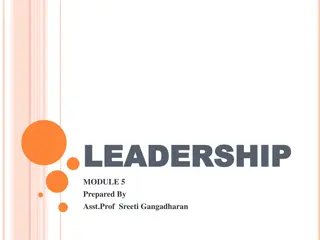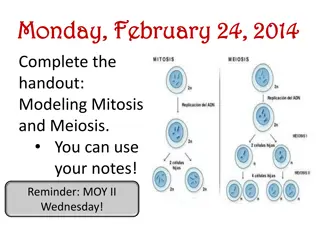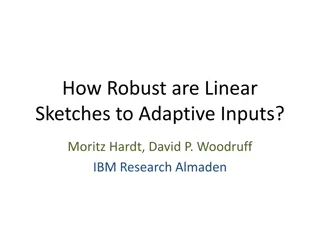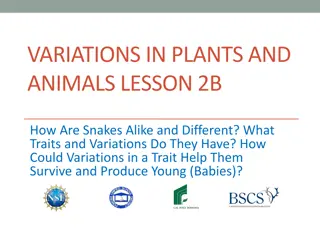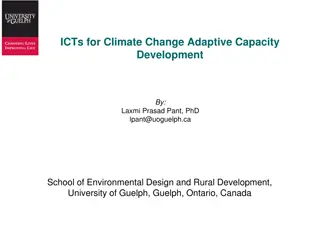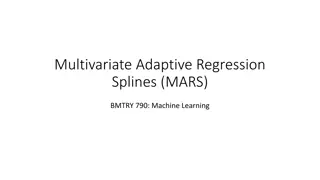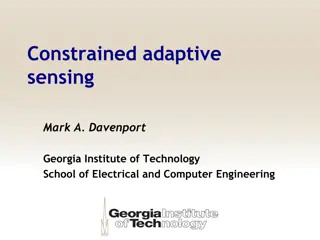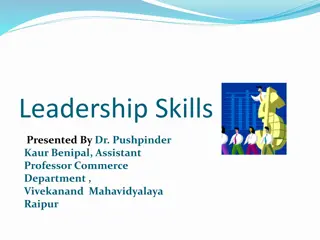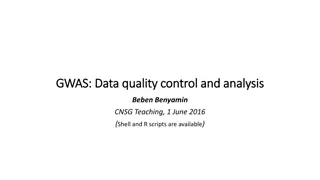Adaptive Tree-based Convergecast Protocol
Adaptive tree-based protocol for managing overlay networks in heterogeneous networks. It proposes improvements to the existing Tree-Based Convergecast Routing (TBCR) protocol by considering additional parameters such as RTT, power consumption, link stability, and link mobility to optimize routing de
31 views • 12 slides
Global Adaptive AI Market
The Global Adaptive AI Market Size is Anticipated to Exceed USD 32435.5 Million by 2033, Growing at a CAGR of 41.1% from 2023 to 2033.
0 views • 5 slides
Global Adaptive AI Market
The Global Adaptive AI Market Size is Anticipated to Exceed USD 32435.5 Million by 2033, Growing at a CAGR of 41.1% from 2023 to 2033.
0 views • 5 slides
Global Adaptive AI Market Size, Share, Forecast 2023 – 2033
The Global Adaptive AI Market Size is Anticipated to Exceed USD 32435.5 Million by 2033, Growing at a CAGR of 41.1% from 2023 to 2033.\n\n
1 views • 4 slides
Localised Adaptive Spatial-Temporal Graph Neural Network
This paper introduces the Localised Adaptive Spatial-Temporal Graph Neural Network model, focusing on the importance of spatial-temporal data modeling in graph structures. The challenges of balancing spatial and temporal dependencies for accurate inference are addressed, along with the use of distri
3 views • 19 slides
Unraveling the Mystery of Traits and Genes
Explore the fascinating world of traits and genes, understanding how they are passed down from parent to offspring through chromosomes. Delve into the role of genes in controlling various traits such as hair color, eye color, and even unique characteristics like detached earlobes and widow's peak. D
0 views • 11 slides
Understanding Cultural Traits and Complexes in Society
Culture is a complex whole that encompasses various aspects such as knowledge, beliefs, arts, morals, laws, customs, and more. Cultural traits, at the simplest level, are individual tools, acts, objects, or beliefs related to specific situations or needs, while cultural complexes are groups of inter
0 views • 18 slides
Understanding Inherited, Learned, and Instinctive Traits in Organisms
Traits in organisms can be inherited, learned, or instinctive. Inherited traits are genetic and include characteristics like hair color and disease predispositions. Instinctive traits are inherent behaviors such as sleeping and grooming. Learned traits are behaviors acquired for survival, like house
0 views • 20 slides
Understanding Sex-Linked Inheritance: Key Concepts and Examples
Sex-linked inheritance refers to the transmission of genetic traits determined by genes located on the sex chromosomes. This type of inheritance differs from autosomal inheritance due to the unique characteristics of the X and Y chromosomes. In organisms with XX/XY sex determination, genes on the X
1 views • 21 slides
Exploring Plant Traits: Do Plants Exhibit Variation in Traits?
Discover in this lesson whether plants display variations in traits through the measurement of plant lengths. Students analyze data tables of carrots and leaves to observe trait variations and discuss patterns found in bar graphs and data tables. The focus is on understanding how to identify and int
0 views • 11 slides
Exploring Leadership Theories: Traits and Behaviors
Leadership theories have evolved from trait theory focusing on personal qualities to behavioral theories emphasizing actions and interactions. While early research sought universal traits for leadership, it encountered challenges due to varied traits among leaders and non-leaders. Behavioral theorie
2 views • 29 slides
Contrasting Qualitative and Quantitative Traits in Genetics
Genetic traits in organisms can be qualitative or quantitative, with qualitative traits controlled by single genes and showing distinct variations, while quantitative traits are influenced by multiple genes and environmental factors, resulting in continuous variations. Qualitative genetics focuses o
0 views • 13 slides
Understanding Personality Traits and Assessments
Psychologists utilize traits to describe personality, addressing common misunderstandings about introversion and exploring the strengths and weaknesses of personality inventories. The consistency of personality traits over time and across situations is examined, along with the identification of insi
0 views • 38 slides
Explore the Science of Natural Selection and Traits
Dive into the fascinating world of natural selection and traits with a focus on how organisms adapt to their environments. Learn about the importance of Charles Darwin's theories, the role of traits influenced by genes and the environment, and how natural selection drives the survival of the fittest
4 views • 13 slides
Understanding Acquired Traits and Learned Behaviors in Living Organisms
Acquired traits are physical characteristics acquired during a living thing's lifetime, such as scars, and are not passed down from parents. Many acquired traits are also learned behaviors, like reading or flying, which animals develop after birth. Learned behaviors, unlike inherited instincts, are
4 views • 15 slides
Understanding Quantitative Genetics Principles in Animal Breeding
Quantitative genetics focuses on the inheritance of characteristics based on degree rather than kind, compared to qualitative genetics. It involves polygenes controlling quantitative traits, which exhibit continuous variation and can be measured using metric units. Qualitative traits, on the other h
0 views • 22 slides
Tandem Method in Animal Breeding: Sequential Traits Selection
Tandem method in animal breeding involves selecting useful traits sequentially to improve genetic performance. Breeders focus on one trait until a desired level is achieved before moving on to the next trait. While effective in targeted improvement, the method can lead to loss of previously improved
0 views • 6 slides
Exploring Ancestry and Traits Through SNPedia and PCA Analysis
Delve into the world of genetics and ancestry analysis through SNPedia, a comprehensive resource for Single Nucleotide Polymorphisms (SNPs) information. Discover how Principle Component Analysis (PCA) simplifies genetic data to reveal insights into ancestry, traits, and informative SNPs. Explore exa
0 views • 33 slides
Understanding Genotype and Phenotype in Hereditary Traits
Exploring simple heredity through predicting and modeling phenotypes of Crazy Creatures, students are tasked with contrasting genotype and phenotype. The Crazy Traits lab data table is essential for recording alleles and genotypes, aiding in determining phenotypes for 14 different traits. By complet
0 views • 4 slides
Understanding Objective Personality Tests and Traits
Explore various objective personality tests and traits, including examples of uni-dimensional traits such as Locus of Control, Type A/B personalities, Tolerance for Ambiguity, Need for Cognition, Bem Sex-Role Inventory, and more. Delve into the concepts introduced by psychologists like Julian Rotter
0 views • 14 slides
Understanding Genetics and Evolution through Traits and Adaptation
Exploring concepts like traits, mutations, adaptations, and genetic changes in organisms to comprehend what makes individuals unique and how species evolve and adapt over time. The content delves into the inheritance of traits, the role of DNA segments, and distinguishing characteristics in living b
0 views • 29 slides
Optical Fiber Calibration System & Adaptive Power Supply by J. Cvach
Introduction to an optical fiber calibration system and adaptive power supply developed by J. Cvach from the Institute of Physics, ASCR, Prague. The system includes an LED driver, notched fibers, and adaptive power supply for various applications, such as the calibration of the CALICE AHCAL and LHCb
0 views • 13 slides
Adaptive Resilient Routing via Preorders in SDN
This research paper discusses the challenges of path-based routing in modern networks and introduces a novel approach called Adaptive Resilient Routing via Preorders in Software-Defined Networking (SDN). The authors emphasize the limitations of traditional routing schemes, the importance of resilien
0 views • 42 slides
Enhancing Learning Design with Adaptive Learning Solutions
Explore the integration of adaptive learning in educational design processes to address common challenges such as high drop-out rates and student disengagement. Discover key players in learning design and the benefits of intelligent adaptive learning systems in catering to individual student needs e
0 views • 56 slides
Exploring Personality Development and Traits
Understanding the importance of personality development, this presentation by Dr. Rani Sarode delves into the various aspects that define an individual's character and behavior. It discusses the significance of traits like communication skills, interpersonal relationships, attitude towards life, and
0 views • 24 slides
All About Team Building, Teamwork, and Leadership Traits
Explore the importance of team building, teamwork, and essential leadership traits. Learn about the purpose of a team, the need for teams in companies, forming effective teams, and the character traits that contribute to team success. Discover roles and responsibilities within a team to enhance coop
0 views • 33 slides
Understanding Horticulture and Agriculture: Adaptive Strategies in Human History
This article delves into the development of adaptive mechanisms in human history, focusing on horticulture and agriculture as key strategies. It explains the differences between horticulture and agriculture, explores the concept of cultivation continuum, and discusses pastoralism as an adaptive stra
0 views • 13 slides
Exploring Plant Traits: Understanding Variation in Characteristics
Delve into the world of plant traits and variation in this interactive lesson. Discover how plants exhibit different traits and explore the concept of variation within species. Engage in investigations, measurements, and discussions to deepen your understanding of plant characteristics. Uncover the
0 views • 12 slides
Evaluating Adaptive Attacks on Adversarial Example Defenses
This content discusses the challenges in properly evaluating defenses against adversarial examples, highlighting the importance of adaptive evaluation methods. While consensus on strong evaluation standards is noted, many defenses are still found to be vulnerable. The work presents 13 case studies o
0 views • 9 slides
Leadership Insights: Traits, Differences, and Framework
Leadership involves guiding others towards shared goals through vision, inspiration, knowledge, and resilience. It distinguishes from management in focus and approach. Analyzing leadership involves assessing leader traits, situational factors, and follower dynamics. The leadership framework comprise
0 views • 36 slides
Understanding Genetics: Mendel's Experiments and Inheritance Patterns
Delve into the world of genetics through Mendel's groundbreaking experiments with pea plants, exploring traits inheritance, Punnett squares, dominant and recessive alleles, incomplete dominance, and co-dominance. Gain insights into how traits are passed from parents to offspring and predict offsprin
0 views • 9 slides
Robustness of Linear Sketches to Adaptive Inputs in Big Data Processing
Exploring the robustness of linear sketches in handling adaptive inputs in big data scenarios. The study covers applications like compressed sensing, data streams, and distributed computation. It delves into the challenges posed by adaptive inputs and the implications for correctness and efficiency
0 views • 27 slides
Exploring Snake Traits and Variations
Delve into the world of snakes to understand their shared traits and diverse variations. Discover how these variations in traits help snakes survive and reproduce, offering insights into their unique characteristics and evolutionary advantages.
0 views • 14 slides
Explore Adaptive Recreation and Sports for Individuals with Disabilities
Discover adaptive recreation opportunities for individuals with disabilities, including winter and summer activities such as skiing, biking, kayaking, and rock climbing. Learn about the mission of providing inclusive leisure options and find volunteer opportunities with organizations like High Count
0 views • 8 slides
Enhancing Climate Change Adaptive Capacity Through ICTs
Developing adaptive capacity to address climate change in vulnerable communities is crucial. Integrating expert and local knowledge using Information and Communication Technologies (ICTs) can help, but challenges like digital exclusion must be overcome. Understanding climate change as a complex prob
0 views • 12 slides
Multivariate Adaptive Regression Splines (MARS) in Machine Learning
Multivariate Adaptive Regression Splines (MARS) offer a flexible approach in machine learning by combining features of linear regression, non-linear regression, and basis expansions. Unlike traditional models, MARS makes no assumptions about the underlying functional relationship, leading to improve
0 views • 42 slides
Unveiling Leadership Traits and Emotions Through Your Journey
Explore the essence of leadership traits and emotions in a visually captivating journey that delves into understanding and mastering the intricacies of leadership. From uncovering your unique traits to navigating through team dynamics, this collection of images offers insights to enhance your leader
0 views • 12 slides
Constrained Adaptive Sensing and Benefits of Adaptivity
Constrained adaptive sensing involves estimating sparse signals with constraints, utilizing strategies like nonadaptive sensing and adaptive sensing. Benefits of adaptivity include reducing errors and improving estimation accuracy in signal processing. It explores the potential for improvement in re
0 views • 17 slides
Leadership Skills Overview: Traits, Theories, and Development
Explore leadership skills presented by Dr. Pushpinder Kaur Benipal, covering traits like adaptability, decisiveness, and social skills. Delve into early and functional leadership theories, understanding the importance of behavior over traits. Develop your own leadership potential with insights into
0 views • 15 slides
Understanding GWAS: A Brief Overview of Genetic Association Studies
GWAS, or Genome-Wide Association Studies, are a method used to map genes associated with traits or diseases by analyzing genetic markers throughout the genome. This process involves statistically testing the association between SNPs and traits using regression or chi-squared tests in a hypothesis-fr
0 views • 19 slides




